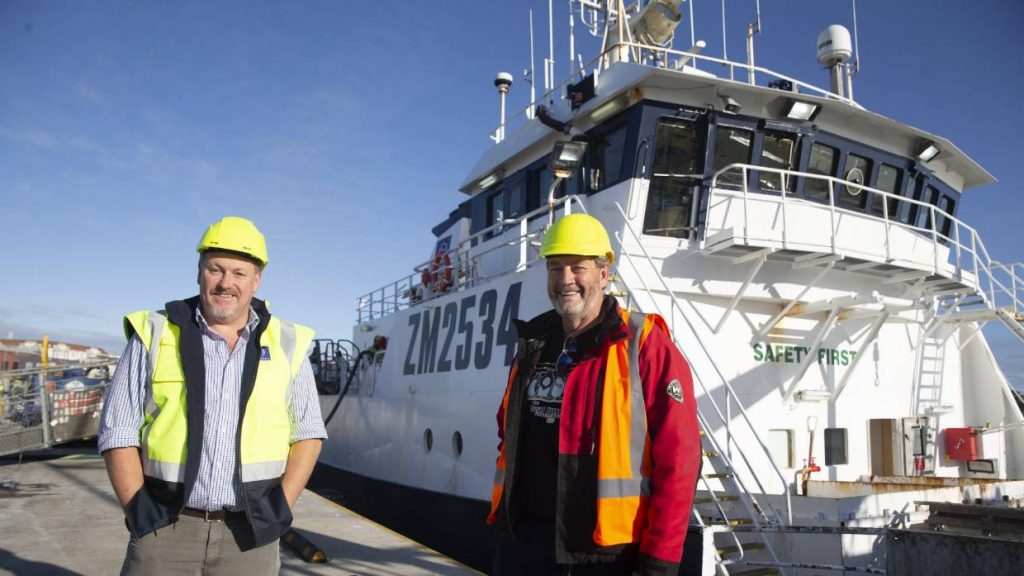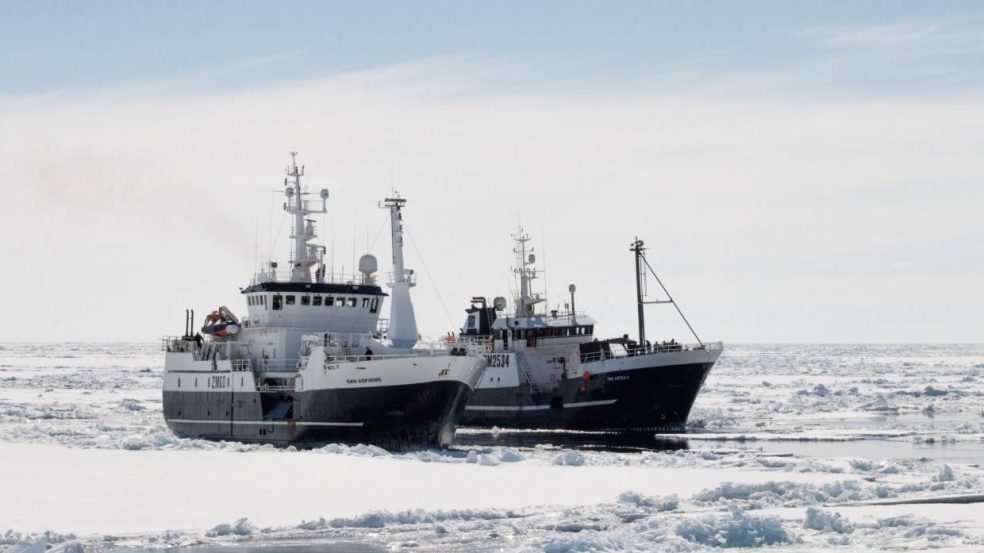A one-off 50-day voyage to retrieve 15 Kiwi fishermen from a deepwater trawler in the Southern Atlantic Ocean will depart Timaru on Friday night because there is no other viable way to get them home.
Sanford deep water fleet manager Darryn Shaw said the trip to the South Georgia Islands had been made necessary due to the impacts of Covid-19, which had made it difficult to get people out of the Falkland Islands, with just one flight a week going to the United Kingdom.
“Normally we would bring our people back by air, via South America, but that is not possible at this time with borders closed into that region. We did look at bringing them home via the UK, but that was going to put them at risk of actually being exposed to Covid-19 – as they would have to fly into the UK and move about between airports.”
Many of the crew, who are fishing for toothfish, had already been at sea for 130 days – missing the entire Covid-19 lockdown – and were eager to get home to their families, Shaw said.
“They have been away a long time, and we need to get them home to their families. If we don’t bring them home soon, they face up to eight months at sea.”
“We don’t want to leave them there, but we also want to keep them as safe as physically possible while returning them to New Zealand.
“We also looked at other options such as chartering a vessel out of Australia. But we decided the best, and safest, thing was to use our own vessel and send our own crew so the bubble isn’t burst, and we can keep everyone totally safe.”

Skipper John Bennett, of Nelson, is in charge of the voyage and said it will take him an estimated 24 days to get the San Aotea deep water long-line fishing boat to the San Aspiring, which is located near the Falkland Islands off the coast of South America.
Bennett said the length of the trip, which will take them down the Southern Ocean and around Cape Horn, would depend on several factors including the weather.
“And then there are icebergs and freezing conditions.”
Bennett has made the voyage many times, but said he never took the trip lightly.
“It’s always a challenge, and an exciting one.
“I’ve been around Cape Horn about 18 times … but we have to concentrate on what we’re doing.
“We anticipate it will take about 24 days to get from Timaru to … where we expect to meet the Aspiring, and we’ll do our exchange.
“The boys will probably take a little longer to come home against the weather,” he said.
Despite his experience, Bennett said this mission was a first for him.
“It is the first operation I’ve been involved in, like this, where we’ve got people on the other side of the world that we’re going over to support and come back.
“I’ve been involved in a couple of search and rescues over the years, but this is different because this is part of our own team rather than somebody else’s.”
Bennett said he thought the retrieval proposal, which would see them collect the crew at sea, was a “fantastic” option.
As well as retrieving crew, the boat would also drop supplies and a new crew to the San Aspiring and collect fish.
“We stay in our bubble, they stay in their bubble. We meet in the middle and those guys get to come home.
The San Aspiring is expected to return to New Zealand in October once it has completed the fishing season, Shaw said.
“We have an obligation to the Government of South Georgia to complete our fishing operation, which also involves scientific research activities.”
Shaw said there are 27 crew on board the San Aspiring, all of whom are Kiwis.
“The crew on the Aspiring come from right across New Zealand, from right here in Timaru to Nelson, to Opotiki and Tauranga.
“Some of them have opted to stay on board longer. They like the earning capacity.”
He said the cost of the mission was substantial but could not divulge the amount.
“The focus of the mission is getting our people home in a timely way without exposing them to any risk whatsoever from Covid-19.
“It is not a cheap activity, there’s a few zeroes involved, but it is worthwhile, and the right thing to do.”
-from Stuff.co.nz

